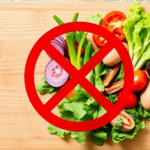Can Eating Healthy Alone Help You Lose Fat Fast?
When it comes to weight loss, many people wonder if simply eating healthy is enough to shed excess fat quickly. The truth is that while healthy eating plays a significant role in losing weight, it’s not the only factor to consider. Understanding the full picture can help you achieve your goals more effectively.
Eating healthy focuses on choosing the right foods. Fresh fruits, vegetables, lean proteins, and whole grains are excellent choices. These foods are nutrient-dense, meaning they provide a lot of nutrients relative to their calorie content. Here are some reasons why healthy eating can expedite fat loss:
- Lower Caloric Intake: Healthy foods tend to be lower in calories. By filling your plate with vegetables and lean proteins, you may consume fewer calories overall.
- Increased Satiety: Foods high in fiber, like whole grains and vegetables, help you feel full for longer. This can prevent overeating and snacking on unhealthy foods.
- Better Nutritional Quality: Eating a variety of nutrient-rich foods ensures your body receives the vitamins and minerals it needs, optimizing your metabolism.
- Balanced Blood Sugar Levels: Healthy foods help stabilize blood sugar levels, reducing cravings for high-sugar, high-fat snacks.
But can healthy eating alone lead to quick fat loss? The answer is no—there’s more to consider. Here’s what you also need to include in your fat loss strategy:
- Physical Activity: exercise is crucial. Even a mix of cardio, strength training, and flexibility exercises can boost your metabolism and help you burn more calories.
- Hydration: Drinking plenty of water supports metabolic processes and helps manage hunger. Sometimes, your body confuses thirst with hunger, leading to unnecessary snacking.
- Sleep Quality: A regular sleep pattern is vital for weight management. Lack of sleep can disrupt hormones that control appetite, leading to overeating.
- Mindful Eating: Focusing on your meals can prevent mindless snacking. Pay attention to your hunger cues and eat slowly to enjoy your food.
Moreover, it’s essential to understand the concept of energy balance. Weight loss is achieved by burning more calories than you consume. Here’s a simple breakdown:
| Activity | Calories Burned per Hour |
|---|---|
| Running (6 mph) | 660-980 |
| Cycling (12-14 mph) | 480-710 |
| Weight Lifting | 180-266 |
| Walking (3.5 mph) | 280-460 |
This table highlights the importance of balancing your healthy eating habits with physical activity. Even small adjustments can make a big difference. For instance, going for a brisk walk or choosing to bike instead of driving can help you burn extra calories.
Furthermore, it’s vital to maintain a positive mindset. Focusing on progress rather than perfection can help you stay motivated. Here are a few practical tips to enhance your approach:
- Set realistic goals. Aim for gradual weight loss, such as 1-2 pounds a week.
- Keep a food diary to track your eating habits and identify areas for improvement.
- Experiment with new recipes that feature healthy ingredients to keep meals interesting.
- Join a community, whether online or in-person, to share experiences and support one another.
Healthy eating into your daily life is a fantastic step toward fat loss. However, it becomes even more effective when paired with an active lifestyle, adequate sleep, and mindful habits. If you’re interested in learning more about healthy eating and weight loss strategies, consider visiting the Academy of Nutrition and Dietetics or ChooseMyPlate.gov for reliable information and resources.
Ultimately, while eating healthy is a crucial element for losing fat quickly, combining it with other lifestyle factors will enhance your journey and lead to sustainable results. Remember, it’s not just about losing weight; it’s also about developing habits that promote long-term health and wellness.
The Role of Portion Control in Effective Weight Loss
Effective weight loss involves several strategies, and one critical aspect is portion control. Understanding how much you eat can make a significant difference in managing your overall caloric intake, leading to successful weight loss. Portion control is about serving sizes and understanding how different foods affect your body. Here’s a deep dive into why portion control is essential for your weight loss journey.
Why Portion Control Matters
Eating large amounts of healthy foods may feel less concerning than consuming less healthy options, but even nutritious foods can contribute to weight gain if eaten in excess. Below are some key reasons why portion control is essential:
- Caloric Awareness: By understanding portions, you learn what a standard serving looks like, which helps you become more mindful about your calories.
- Prevent Overeating: Managing portions reduces the temptation to overindulge, which can sabotage your weight loss efforts.
- Balanced Nutrition: Proper portioning allows for a more varied diet. It helps you enjoy a wider range of foods without overloading on certain food groups.
- Mindful Eating: Portion control encourages you to slow down and enjoy the meal. This can improve satiety signals, helping you recognize when you’re genuinely full.
Portion Sizes: Understanding Recommendations
Knowing the recommended serving sizes can guide you in portioning your meals effectively. Here’s a quick reference table for some common food items:
| Food Item | Recommended Serving Size |
|---|---|
| Vegetables | 1 cup (cooked) or 2 cups (raw) |
| Fruits | 1 medium-sized fruit or 1 cup (cut-up) |
| Grains | ½ cup (cooked) or 1 ounce (dry) |
| Protein (meat, poultry, fish) | 3 ounces (cooked) |
| Dairy | 1 cup (milk or yogurt) or 1.5 ounces (cheese) |
For personalized guidance, consider consulting with registered dietitians or nutritionists who can help you determine the best portion sizes based on your specific goals. Websites like Eat Right provide valuable resources for portion control and healthy eating.
Helpful Strategies for Portion Control
Implementing effective portion control is straightforward. Here are several strategies to help you manage your portions successfully:
- Use Smaller Plates: Research suggests that using smaller plates can help you perceive your meal as larger, leading to reduced intake.
- Pre-portion Snacks: Instead of eating directly from large packages, measure out individual servings to avoid mindless munching.
- Read Nutrition Labels: Familiarize yourself with serving sizes listed on packaging; this will help ensure you aren’t consuming more than intended.
- Practice Mindfulness: Focus on your meal by removing distractions like television or smartphones. Eating slowly can help you savor flavors and recognize fullness signals.
- Plan Ahead: Prepare meals in advance with proper portions to keep you on track, especially when busy.
You Can Do It!
Portion control can be a game-changer in your weight loss efforts. Remember, it is not just about what you eat but how much you eat. By becoming more aware of portion sizes, you can foster healthier eating habits, reduce calorie intake, and achieve your weight loss goals.
For more insights on portion control and effective weight loss strategies, websites such as NHLBI’s We Can! programs can enhance your understanding and support your journey.
These strategies into your daily routine could lead to a healthier, happier you. Take it step-by-step, and remember that consistency is vital for lasting change.
Understanding Macronutrients: Balancing Proteins, Carbs, and Fats
Macronutrients are essential components of your diet that provide the energy necessary for daily activities and are fundamental to overall health. The three primary macronutrients are proteins, carbohydrates, and fats. Balancing these macronutrients is crucial for your nutritional needs and can significantly influence your health and fitness goals.
Understanding Proteins
Proteins are the building blocks of your body, essential for repairing tissues, making enzymes and hormones, and supporting overall growth and development. adequate protein into your meals helps manage cravings, promotes a sense of fullness, and can even boost metabolism.
Some excellent sources of protein include:
- Lean meats like chicken and turkey
- Fish and seafood
- Eggs
- Dairy products such as yogurt and cheese
- Legumes like beans, lentils, and chickpeas
- Nuts and seeds
Understanding Carbohydrates
Carbohydrates are the body’s primary energy source. They break down into glucose, which your body uses for immediate energy. Carbs can be classified into simple carbohydrates (sugars) and complex carbohydrates (fiber and starch). It’s important to prioritize complex carbs, as they provide more nutrients and help stabilize blood sugar levels.
Good sources of carbohydrates include:
- Whole grains (brown rice, quinoa, oats)
- Fruits (berries, apples, bananas)
- Vegetables (broccoli, spinach, sweet potatoes)
- Legumes (lentils, black beans)
Understanding Fats
Fats often receive a bad reputation, but they play numerous vital roles in the body, including nutrient absorption, hormone production, and providing a concentrated source of energy. Healthy dietary fats are essential for heart health and help reduce inflammation.
Focus on incorporating healthy fats such as:
- Avocados
- Olive oil and other vegetable oils
- Fatty fish (salmon, mackerel)
- Nuts and seeds
- Coconut oil
Balancing Macronutrients
Finding the right balance of protein, carbohydrates, and fats can greatly influence your energy levels, overall health, and fitness progress. A common approach is to use the following macronutrient distribution:
| Macronutrient | Recommended Percentage of Daily Intake |
|---|---|
| Proteins | 10-35% |
| Carbohydrates | 45-65% |
| Fats | 20-35% |
This distribution can be adjusted based on individual goals such as weight loss, muscle gain, or maintenance. For example, those trying to lose weight may increase protein intake to help manage hunger and boost metabolism while reducing carbohydrates significantly.
Meal Planning Tips
Creating balanced meals is an excellent way to ensure you are getting the right macronutrient ratio. Here are some straightforward tips:
- Include a source of protein with each meal.
- Opt for whole grains rather than refined grains.
- Add healthy fats such as olive oil or avocado to meals.
- Incorporate a variety of colorful vegetables for nutrients and fiber.
Monitoring your macronutrient intake can also be beneficial. Consider using apps or websites to help you track your food consumption. You can visit [MyFitnessPal](https://www.myfitnesspal.com/) for tracking purposes.
Your energy needs may vary based on physical activity levels, age, and health goals. Make adjustments as necessary, and it is always wise to consult with a healthcare provider or registered dietitian for personalized dietary advice. For more in-depth information about macronutrients, you can check out [Harvard Health](https://www.health.harvard.edu/).
Finding the right balance among these macronutrients is a journey, and respecting your body’s needs goes a long way. Understanding how they work together will help you optimize your diet for health and performance.
The Impact of Hydration on Fat Loss and Overall Health
Water is vital for all life forms, and for good reason. It not only aids in hydration but also plays a significant role in fat loss and overall health. Many people often overlook the importance of staying properly hydrated as part of their fat-loss strategy, focusing solely on diet and exercise. Understanding the impact hydration has on your body can empower you in your journey to lose fat efficiently.
When you drink enough water, it helps boost your metabolism. Studies show that drinking cold water can increase your metabolism by about 30% for around 30-40 minutes. This temporary boost can lead to more calories burned, thus supporting your fat-loss efforts. A well-hydrated body also performs better during workouts, allowing you to push harder and burn more calories.
Not only does hydration support metabolism, but it also influences how you feel. Often, when you think you’re hungry, your body might actually be thirsty. By drinking enough water, you can manage your appetite better and avoid unnecessary snacking. A study by the National Institutes of Health reveals that when people drink water before meals, they generally consume fewer calories during the meal.
Hydration supports your body’s ability to perform basic functions. When dehydrated, your physical performance declines. Research indicates that even mild dehydration (1-3% of body weight) can have a noticeable impact on energy levels and mood. This can lead to decreased motivation for physical activity, which in turn hinders fat loss. If you want to ensure your workouts are productive, staying hydrated is crucial.
Another significant aspect of hydration is its relationship with digestion. Adequate water intake helps your body break down food, making it easier to absorb nutrients. When your digestive system is functioning well, your body becomes more effective at processing food and utilizing it for energy or storing it as fat. This means that good hydration can help facilitate fat loss by improving nutrient absorption and metabolism.
| Benefit | Impact on Fat Loss |
|---|---|
| Boosts Metabolism | Increases calorie burning |
| Reduces Hunger | Decreases unnecessary snacking |
| Supports Exercise Performance | Improves workout intensity |
| Enhances Digestion | Improves nutrient absorption |
To optimize your hydration, consider these simple tips:
- Carry a water bottle with you throughout the day. This constant reminder can help you drink water regularly.
- Set reminders on your phone to take a hydration break.
- Incorporate foods with high water content, like cucumbers and watermelon, into your diet.
- Monitor your urine color; pale yellow is usually a good sign of hydration.
While water is incredible for fat loss, it should not replace other healthy lifestyle choices. A balanced diet and regular exercise remain essential components of any effective fat-loss strategy. However, hydration complements these elements, ensuring your body is functioning optimally while pursuing your goals.
Furthermore, hydration affects mental health too. Studies have shown that dehydration can lead to feelings of fatigue, confusion, or even anxiety. Maintaining proper hydration can enhance mental clarity and mood, crucial for adhering to healthy eating practices and exercise routines. Visit Harvard’s T.H. Chan School of Public Health for more insights on how hydration impacts your well-being.
Summarily, staying hydrated is not just about drinking water; it’s about creating a sustainable routine that incorporates regular fluid intake into your daily life. As you aim to lose fat and enhance your overall health, consider hydration as a foundation upon which your diet and exercise habits can thrive.
How Regular Exercise Complements a Healthy Diet for Fat Loss
When it comes to achieving fat loss, many individuals focus solely on their diet, believing that eating healthy alone is the key to shedding pounds. However, integrating regular exercise into your routine significantly enhances your efforts and helps you reach your fat loss goals faster. This article highlights how exercise complements a healthy diet, outlines the benefits of physical activity, and provides tips for creating a balanced approach to fat loss.
Eating healthy involves choosing nutrient-dense foods, such as fruits, vegetables, whole grains, lean proteins, and healthy fats. These foods fuel your body with the right nutrients essential for overall health. However, without regular physical activity, you may miss out on the full spectrum of benefits that contribute to fat loss.
The Synergy Between Diet and Exercise
Combining a healthy diet with exercise creates a powerful synergy. Here’s how:
- Increased Caloric Burn: Exercise helps burn calories. When you engage in regular physical activity, from strength training to cardio, you increase your daily caloric expenditure, which can help create a calorie deficit necessary for fat loss.
- Fat Reduction: Exercise leads to a higher percentage of fat used for energy. Resistance training, in particular, stimulates muscle growth, which can increase your resting metabolic rate and enhance fat burning.
- Improved Metabolism: Regular exercise can boost your metabolism, ensuring your body uses energy more efficiently. This means you can consume a balanced diet without gaining weight.
- Preserved Muscle Mass: While losing weight, it’s common to lose muscle along with fat. strength training into your routine ensures that more muscle is preserved, which is crucial for a toned appearance.
Benefits of Regular Exercise
Not only does exercise complement a healthy diet, but it also offers a myriad of benefits for your physical and mental well-being:
- Mood Enhancement: Exercise releases endorphins, often referred to as “feel-good” hormones. This uplift can reduce stress, anxiety, and depression, making it easier to stick to a healthy lifestyle.
- Increased Energy: Regular physical activity can improve your stamina and energy levels, allowing you to perform daily activities more effectively.
- Better Sleep: Exercise can help regulate sleep patterns, promoting deeper and more restful sleep, which is key to weight management.
- Health Maintenance: Beyond fat loss, exercise strengthens the cardiovascular system, improves bone density, and reduces the risk of chronic diseases.
Creating a Balanced Strategy
To maximize your fat loss, it’s crucial to implement a balanced strategy that includes both healthy eating and regular physical activity. Here are some tips:
- Set Realistic Goals: Begin with achievable short-term goals and adjust them as you progress. For example, aim for a certain number of workouts per week or a specific weight you want to lift.
- Mix It Up: Vary your workouts to keep things fresh. Incorporate cardio, strength training, and flexibility exercises. This balance can prevent boredom and improve overall fitness.
- Monitor Your Progress: Keeping track of your meals and workouts can help you identify what works and what doesn’t. Use apps or journals to monitor your progress effectively.
- Stay Hydrated: Proper hydration supports your workouts and overall health. Aim for at least 8 glasses of water daily.
Getting Started
If you’re unsure how to begin combining diet and exercise, consider starting a walking program or joining a community fitness class. Engaging with others can also provide motivation and support. For more structured guidance, check out resources like ChooseMyPlate.gov and ACSM.org, which provide helpful dietary and exercise recommendations.
| Exercise Type | Fat Loss Benefits |
|---|---|
| Cardiovascular Training | Burns calories, improves heart health |
| Strength Training | Builds muscle, increases metabolism |
| Flexibility Exercises | Enhances mobility, supports injury prevention |
Ultimately, the combination of healthy eating and regular exercise creates a powerful foundation for effective fat loss. By understanding and embracing the strong relationship between the two, you can accelerate your results and enjoy improved health and well-being. Remember, consistency is key, and every small effort adds up to significant changes over time.
The Importance of Meal Planning and Preparation for Weight Management
Meal planning and preparation play a crucial role in effective weight management. By organizing your meals ahead of time, you can control portions, choose nutritious ingredients, and ultimately avoid the pitfalls of unhealthy eating. Understanding the importance of meal planning can empower you to make healthier choices, save time, and reduce food waste.
Benefits of Meal Planning
Planning your meals has multiple advantages that contribute positively to weight management:
- Better Portion Control: When you plan your meals, you can measure and portion your food, which helps eliminate overeating.
- Nutritional Awareness: Meal planning encourages you to think about what you’re eating. You can select healthier options, ensuring you include fruits, vegetables, lean proteins, and whole grains.
- Time-Saving: Having a meal schedule streamlines grocery shopping and cooking times, making your week easier.
- Less Stress: Planning reduces the daily hustle of figuring out what to eat, making it easier to stick to your healthy eating goals.
- Reducing Food Waste: By planning out meals, you can buy exactly what you need, which helps minimize excess food that often goes to waste.
Effective Meal Prep Strategies
Implementing meal prep into your routine can amplify the benefits of planning. Here are some strategies to enhance your meal preparation:
- Set a Weekly Schedule: Dedicate a specific day to meal prep. Many people find Sundays are ideal for grocery shopping and cooking.
- Choose Recipes Wisely: Select dishes that are healthy, easy to prepare, and can be made in batches. This will save time and prevent monotony.
- Use Versatile Ingredients: Ingredients such as quinoa, brown rice, and beans can be used in various meals, providing diversity and nutrition.
- Pre-portion Snacks: Prepare snacks in advance, like cut-up veggies or portioned nuts to curb hunger throughout the week.
- Invest in Quality Containers: Good storage containers are essential for keeping your meals fresh and easy to grab.
Meal Planning Tools and Resources
Various tools can help you streamline your meal planning and preparation process. Here are some effective resources:
| Tool | Description | Link |
|---|---|---|
| MyFitnessPal | A calorie tracking app that helps you log meals and monitor your nutrition. | Visit MyFitnessPal |
| Mealime | A meal planning app that offers customizable meal plans based on dietary preferences. | Visit Mealime |
| Yummly | This platform offers a wide range of recipes and can create grocery lists based on your selections. | Visit Yummly |
Tips for Staying Committed
Meal planning is only effective if you stay committed to it. Here are some tips to help you stay on track:
- Get Creative: Experiment with new recipes to keep your meals exciting.
- Stay Flexible: Life happens! It’s okay to adjust your meal plan as needed.
- Involve Family: If you cook for a family, involve them in meal planning. This can make it more enjoyable and encourage everyone to eat healthier.
- Track Your Progress: Keep a journal of what you eat, as this can provide insight into your eating habits and help you make adjustments.
By taking the time to plan and prepare your meals, you set yourself up for success in managing your weight. It not only improves your relationship with food but also contributes to a healthier lifestyle overall. Take the first step today, and you’ll notice how much easier it is to maintain your weight goals.
Psychological Factors in Eating Habits and Their Effect on Weight Loss
Uncovering the psychological factors that influence eating habits is crucial for anyone looking to manage their weight effectively. Understanding these elements can help you make better food choices and achieve your weight loss goals.
Many of our eating habits stem from emotions and brain chemistry. Consider these psychological factors that play a significant role:
- Stress and Emotional Eating: When under stress, many people turn to food as a form of comfort. This can lead to consuming more calories than needed, often focusing on high-calorie, comfort foods.
- Habits and Routines: Regular eating patterns can become ingrained in your daily routine, making it difficult to change your diet. Breaking old habits can be challenging, but essential for weight loss.
- Social Influence: The people you surround yourself with can impact your eating behavior. If friends or family prefer unhealthy options, it may be tougher for you to choose wisely.
- Self-esteem and Body Image: How you view yourself can also affect your choices. If you feel negatively about your body, it may lead to unhealthy eating patterns, either through overeating or restrictive diets.
- Food Marketing: Advertising often influences what you eat, promoting unhealthy options that can lead to guilt and weight gain.
Combating these factors requires a conscious effort to develop healthier behaviors. Here are some strategies to help:
- Mindful Eating: Pay attention to your hunger signals and eat slowly. This practice helps you enjoy your food more and recognize when you’re full.
- Keep a Food Journal: Tracking what you eat can reveal patterns and trigger emotional eating. Write down not just what you consume, but also your thoughts and feelings surrounding those meals.
- Seek Support: Whether it’s friends, family, or a professional, having someone to support you can make a big difference in your weight loss journey.
Additionally, certain psychological techniques can help you stay on track:
- Cognitive Behavioral Therapy (CBT): This helps you identify negative thought patterns related to food and weight. By changing your mindset, you can influence your eating habits positively.
- Developing Coping Strategies: This may involve finding healthy ways to manage stress. Engaging in activities like exercise, meditation, or hobbies can keep you from turning to food during tough times.
Another crucial aspect is understanding the concept of food triggers. Situations, emotions, or environments that prompt you to eat can be identified and managed. Here are some common triggers:
| Trigger | Management Strategy |
|---|---|
| Watching TV | Limit snacking; keep healthy options nearby |
| Stressful Work Environment | Incorporate breaks for meditation or short walks |
| Social Gatherings | Plan ahead and eat a healthy snack before |
By recognizing these psychological influences and taking proactive steps, you can better navigate your eating habits. The journey to weight loss often requires small, sustainable changes rather than drastic dieting. Moreover, understanding the deeper meanings behind food can lead to empowering personal growth and health.
If you’re looking for more resources on eating habits and weight loss, consider visiting these useful websites: Psychology Today on Emotional Eating and NCBI on Psychological Factors in Eating Habits.
Be sure to focus on your mental relationship with food, and you’ll find that changing your eating habits can lead to positive changes in your weight and overall health. Remember, it’s not just about the food; it’s about understanding why you eat the way you do.
Key Takeaway:
Key Takeaway: A Holistic Approach to Fat Loss Is Essential for Effective Results
The journey to losing fat fast is often perceived as a straightforward path of simply eating healthy. However, as we explore various factors that contribute to effective weight loss, it’s evident that a more comprehensive approach is required to achieve long-lasting results. While consuming nutrient-dense foods lays the foundation for a healthy lifestyle, it must be accompanied by other critical strategies to truly see progress.
Portion control plays a significant role in weight management. Eating healthy foods is just one piece of the puzzle; if portion sizes are too large, they can negate the benefits of those healthy choices. Learning to listen to your body’s hunger cues and practicing moderation can dramatically affect your results.
Moreover, understanding macronutrients—the balance of proteins, carbohydrates, and fats—is vital. Each nutrient serves a unique purpose in your body and can affect how you feel and function. By finding the right balance that works for you, you can maximize your eating efforts and support fat loss more effectively.
Hydration is often overlooked but has a direct impact not only on your overall health but also on fat loss. Drinking plenty of water helps maintain energy levels, supports digestion, and can even curb unnecessary snacking when you’re mistaking thirst for hunger.
While a good diet is essential, incorporating regular exercise complements your healthy eating plan. Exercise not only helps burn additional calories but also builds lean muscle mass, which speeds up metabolism.
Meal planning and preparation can simplify healthy eating and prevent less nutritious choices. Taking time to plan out meals can ensure you stay on track with your nutrition goals.
One cannot ignore the psychological aspects of eating. Identifying emotional triggers and understanding your eating habits is crucial in overcoming challenges that may arise during your weight-loss journey.
While eating healthy is a fundamental component of losing fat fast, it must be part of a larger strategy that includes portion control, understanding macronutrients, adequate hydration, regular exercise, meal planning, and addressing psychological habits. Embracing this holistic approach will not only help you lose fat effectively but also lead to a healthier, more sustainable lifestyle.
Conclusion
Eating healthy is a vital part of any weight loss journey, yet it’s essential to consider it as one piece of a larger puzzle. While a nutritious diet can help you shed fat, combining it with portion control enables you to optimize caloric intake and achieve your goals faster. Understanding macronutrients—balancing proteins, carbs, and fats—further enhances your ability to lose fat effectively. Each macronutrient plays a critical role in your body’s functions, impacting metabolism and recovery.
Hydration shouldn’t be overlooked either. Adequate water intake can boost your metabolism and keep your body functioning smoothly, which aids in fat loss. However, the journey doesn’t stop at diet; regular exercise is equally crucial. Physical activity complements healthy eating by increasing calorie expenditure and improving body composition.
Meal planning and preparation ease the struggle of maintaining a healthy diet, empowering you to make better choices and resist temptations. Additionally, being aware of the psychological factors that influence your eating habits—such as stress and emotional triggers—can help you adopt healthier habits.
By recognizing the interconnectedness of these factors, you create a holistic approach to weight loss. Ultimately, while eating healthy is an important step, integrating these additional strategies will enhance your efforts and promote sustainable fat loss, leading you to a healthier, happier you.












